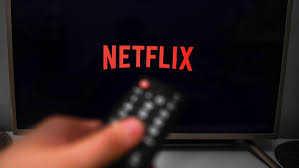Source: forbes.com
I have written on several occasions about Netflix’s use of data analysis and how this strategy has given it a clear advantage over traditional approaches based on studio executives’ “gut feeling”. We now have tangible evidence of the success of this strategy: in December Netflix dominated the Golden Globes nominations, and at the upcoming Oscars, has 22, way ahead of its rivals.
Some people in the film industry will probably not be too happy with Neflix’s strategy, which has already made it an industry leader. In the meantime, its competitors are now openly trying to imitate that strategy, which is based on two fundamental methods: the use of big data, and playing a long game.
Coincidence? Not really. Netflix’s use of big data has already been commented on in countless analyses: it is based on the channel’s supremacy, something that the company began to verify when it used to send DVDs by mail, but of which it was completely aware when it began to replace this with streaming. An approach that provides superior data and instantaneous feedback, as well as setting it apart from the competition. Box office feedback is useful, but no matter what we do, it can’t offer us the level of detail the internet provides, with users voting in real time with mouse clicks or their remote control. Steven Spielberg may insist Netflix is “minor league” because it uses television rather than the big screen, but its goal is not to dominate television content, but all content. Period. Wherever it is consumed.
That said, big data is not magic. Netflix says that it is always secondary to creativity, and that signing opportunities, contracts or development and creative ideas related to the production of a film or series make up 70% of the decision, with analysis of data the remainder, generally related to the volume of resources that will be put on the table. According to Ted Sarandos, chief content officer for Netflix, “choosing content and working with the creative community is a very human function, data doesn’t help you in that process, it helps you evaluate the investment.”
How much would change in companies if we had decision-making systems based on a proper analytical data architecture, instead of relying on management’s overrated “intuition”? In the end, the experience that guides intuition shows that all managers are wrong by roughly the same percentage, and that some are just lucky in that their biggest mistakes coincide with decisions that had little impact. Netflix’s success proves this: if we consistently resort to data analysis, a greater percentage of our decisions will be better made, the risks we take will be more balanced, and the results will be better.
Many managers would dismiss this out of hand and say I have no idea about the value of experience, the role of intuition or the importance of intangibles in decision making. This is not the only part of Netflix’s strategy that prompts such a reaction: the other is the company’s long-term orientation. For traditional managers, looking beyond the quarter that determines, in many cases, the size of their bonus is difficult and unjustifiable. They live with the pressure of the quarterly results, with the anguish of not letting down the analysts who determine the value of their stock option package, and therefore, when they see companies like Netflix, which has been losing significant amounts of money since its origins, and a manager, Reed Hastings, who proudly states that those losses will continue for many years, dismiss it as a some sort of scam or a pyramid scheme, and file it under “the exception that proves the rule” and predicting that it cannot last.
A few weeks ago, that “exception to the rule” called Netflix beat all the traditional studios and positioned itself as the current industry leader. In fact, it has been doing so for several years now at different award ceremonies, interrupted only by major events such as the last season of Game of Thrones, confirming beyond doubt that its model is superior. The same could be said of other companies that play a long game without blinking, such as Tesla or Amazon, again scandalizing traditional managers. If you are also scandalized take it into account: today’s leadership is based on big data and a long game. Your analysis and decision models are probably outdated, and at some point, these flaws might get exposed. Don’t say you weren’t warned.
